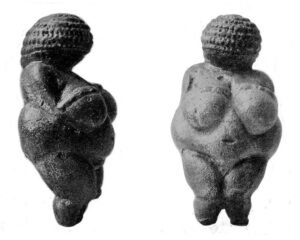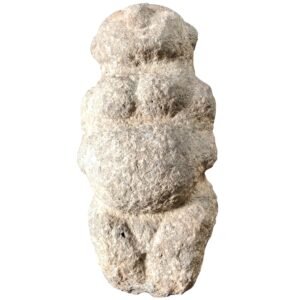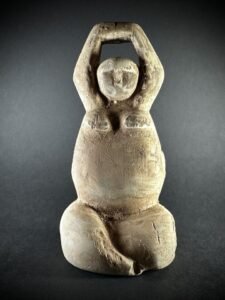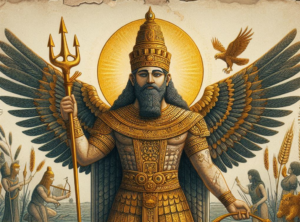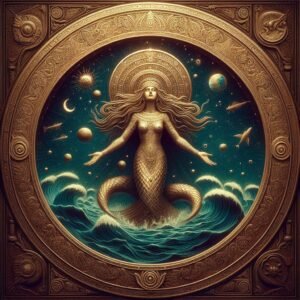The suppression and defacing of the divine feminine appears to have begun as part of cultural and religious shifts associated with societal transitions from egalitarian or matrilineal societies to more hierarchical and patriarchal ones.
Category: Babylonian mythology
Permanent link to this article: https://truthofself.com/when-did-the-suppression-of-the-divine-feminine-begin/
Permanent link to this article: https://truthofself.com/understanding-of-the-divine-nature-of-the-hiding-of-the-divine-feminine-in-history/
Mar 26
From Mother to Father – A Spiritual Gender Dominance Shift?
The hypothesis of a historical shift from feminine dominance to masculine dominance in spiritual and religious expression is a widely discussed idea in anthropology, archaeology, and religious studies. While it remains a topic of debate, there is considerable evidence suggesting a gradual transition in spiritual focus and societal structures over millennia.
Permanent link to this article: https://truthofself.com/from-mother-to-father-a-spiritual-gender-dominance-shift/
Permanent link to this article: https://truthofself.com/the-waxing-and-waning-of-the-divine-feminine-through-time/
Jul 14
The God Marduk
Permanent link to this article: https://truthofself.com/the-god-marduk/
Jul 13
The Goddess Ninlil
Permanent link to this article: https://truthofself.com/the-goddess-ninlil/
Jul 13
The God Utu
Permanent link to this article: https://truthofself.com/the-god-utu/
Jul 13
The God Ninurta
Permanent link to this article: https://truthofself.com/the-god-ninurta/
Jul 13
The Goddess Ereshkigal
Ereshkigal is a prominent figure in Mesopotamian mythology, known as the goddess of the underworld. Her name translates to “Queen of the Great Earth” or “Lady of the Great Place.” She rules over the land of the dead, often referred to as Kur or Irkalla, and is responsible for keeping the dead within her realm and preventing the living from entering.
Permanent link to this article: https://truthofself.com/the-goddess-ereshkigal/
Jul 13
The Igigi lesser gods
The term “Igigi” refers to a group of mythological figures in Mesopotamian mythology. They are often considered the younger gods who served the Anunnaki, the major deities. According to the Atrahasis myth, the Igigi were tasked with laborious work for the Anunnaki until they eventually rebelled due to the harsh conditions.
Permanent link to this article: https://truthofself.com/the-igigi-lesser-gods/
Jul 13
The God Nergal
Nergal, also known as Erra, was a prominent deity in Mesopotamian mythology, revered as the god of war, death, and disease. He was associated with the underworld and often depicted as a fierce and destructive force. Nergal’s primary cult centre was the city of Kutha, where he was worshipped as the ruler of the underworld.
Permanent link to this article: https://truthofself.com/the-god-nergal/
Jul 12
The Sumerian cosmology
The Sumerian cosmology is a fascinating blend of mythology and early scientific thought. The Sumerians envisioned the universe as a closed dome surrounded by a primordial saltwater sea. The earth was seen as a flat disc beneath this dome, with an underworld and a freshwater ocean called the Abzu beneath it.
Permanent link to this article: https://truthofself.com/the-sumerian-cosmology/
Jul 12
The Goddess Nammu
Nammu is a primordial goddess in Sumerian mythology, often associated with the creation of the universe and humanity. She embodies the primeval waters, an elemental force from which life and the pantheon of gods emerged. As a creator deity, Nammu’s role is pivotal in the cosmogony of Mesopotamian belief systems, where she is revered as the mother who gave birth to the major deities, including Enki, the god of wisdom, water, and creation.
Permanent link to this article: https://truthofself.com/the-goddess-nammu/
Jul 12
The God Enki
Permanent link to this article: https://truthofself.com/the-god-enki/
Jul 12
The God Anu
Permanent link to this article: https://truthofself.com/the-god-anu/
Jul 12
The Sumerian City of Uruk
Permanent link to this article: https://truthofself.com/the-sumerian-city-of-uruk/
Permanent link to this article: https://truthofself.com/the-beliefs-of-ancient-mesopotamia/

